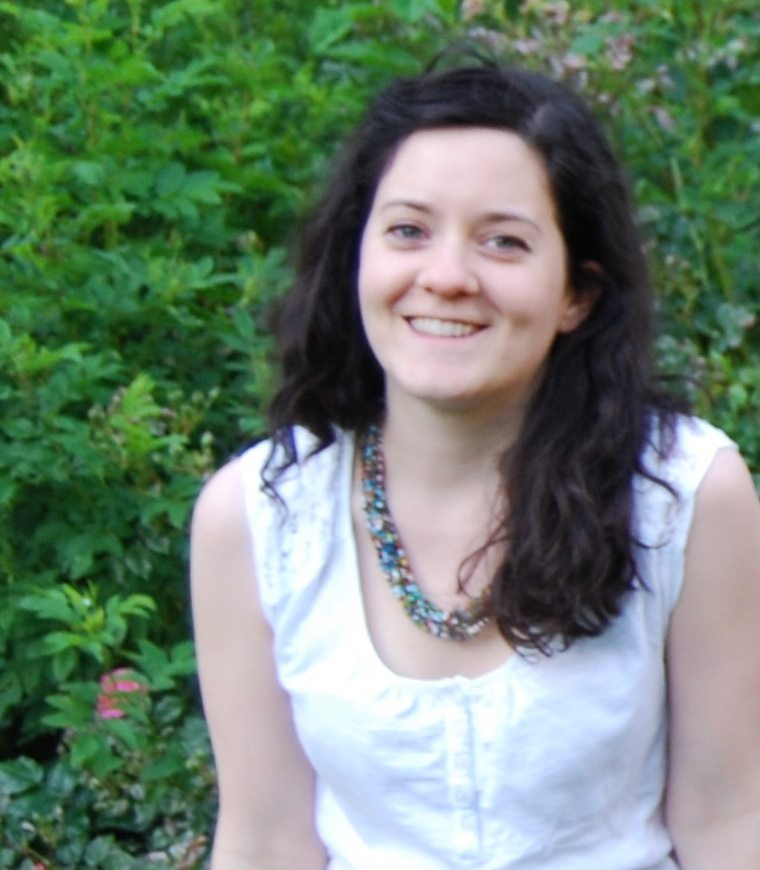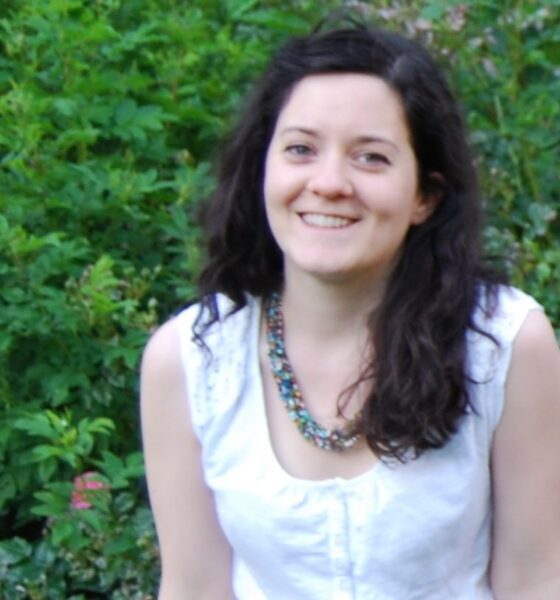

Economy
Future sustainability leaders: Angela Green
What will business look like in the future and who are our future leaders?
This is the sixth instalment in our series speaking with a group of young people who are making waves in sustainability. All 12 are scholars on Forum for the Future’s renowned master’s course in leadership for sustainable development.
Angela Green has wanted to help make the world a better place for as long as she can remember. From her placement with Aviva Investors, she tells us about what she has learnt.
Tell us about your experience on the Forum for the Future master’s course. What have your placements involved?
The main reason I chose this course was to dip my toe into how sustainability can work across many different industries through the varied placements on offer.
In my food system placement, I worked with farmers, cheese makers and office workers on ways to further embed sustainability throughout the dairy co-operative First Milk (the brand behind the Lake District Cheese Company and Pembrokeshire Cheese).
In my communications placement, I was trained to use the Scottish government’s new behaviour change policy tool, the ISM model, and then made recommendations for marketing it and engaging more companies and local authorities to use it. I also worked with the 2020 Climate Group which showed me the amazing power of collaboration when you put it at the heart of what you do.
My energy placement was with the housing developer Crest Nicholson, where I researched and presented to senior board members how they can make it easier for new homeowners to reduce their space heating energy use through design and behaviour change measures.
Currently I’m working with Aviva Investors to research sustainable certification and assurance marks across different industries to better inform their investment decisions and engagement with investee companies.
Where does your interest in sustainability come from?
I’ve always been fascinated by people and although it might sound clichéd, I knew from an early age I wanted to help make the world a better place. Through my love of travelling, volunteering abroad and my studies of French and international relations, I realised how essential living within environmental limits is in order for people to prosper, as well as protecting the environment for its own sake.
Since graduating in 2010, I’ve worked as visitor experience manager with the RSPB and as project officer with Nurture Lakeland to engage businesses, communities and tourists with sustainable tourism in the Lake District and reducing their environmental impacts through their love of the landscape.
For me, sustainable development is about making sure we’re heading in the right direction – one that will help people and the natural world flourish for years to come. What’s more, sustainable development definitely appeals to the problem-solver in me who’s up for a challenge.
What is the best piece of advice you’ve been given during your course?
“Speak the language of the person you’re trying to engage with and meet them where they are – don’t expect them to come to meet you.” This advice came from Sara Parkin, co-founder of Forum for the Future and one of our lecturers. It chimed very clearly with my experience of working within the sustainability sector with businesses and the public prior to the course as well as my placements this year.
Engaging varied audiences who have different values and levels of interest to help them believe sustainable development applies to them requires talking with them on their terms, using the language they use and will connect with – and often this will mean not calling what we’re talking about ‘sustainability’!
What’s the most important business lesson you’ve learnt?
Collaboration is key. Before the course, I had no idea how essential collaboration between competitors has been in furthering sustainable development so far, across almost every industry. I now have a much more nuanced understanding of how the business world operates and that although keeping a competitive advantage is paramount, this doesn’t exclude working with competitors to change the wider system in which they operate to be able to work more sustainably.
On a personal level I’ve realised the importance of growing my own network of similarly-minded sustainability professionals in order to share limited resources and get big things done together to make a real impact.
What one idea do you think could change the world for the better?
I think the one idea that could change the world for the better is if people stop thinking that one idea could change the world for the better! This course has really opened my mind to systems thinking and as such I think that instead of looking for a silver bullet, we’ve got to try a multitude of good ideas to see which ones gain traction, which ones people engage with and which ones manage to catalyse the right things at the right time.
That’s not to say that there aren’t things that could be done to help all this along – investors placing their money into companies who consider their environmental and social impacts, governments incentivising companies to count the costs of their environmental and social externalities, and anything to help people feel more empowered and that their votes, voices and actions really do count towards making tomorrow a better place.
What do you see of the future in terms of sustainability, business and the environment?
The world will keep on turning, whatever we do in terms of sustainability – the question is what do we want society to look like in 10, 20, 30 years’ time? I am working towards a future where inequality is lessened, where everyone has what they need to lead a life of dignity and where we do not compromise tomorrow’s environment for today’s convenience.
Business has a place in providing this if we remember what Adam Smith, the father of capitalism, said about people and companies having a responsibility towards others. We would do well to revisit what we are making money for, and whether it could be serving us better – something many ordinary people (and some companies) are already starting to ask and which offers hope that we could move in a different direction.
Where will you be in 10 years’ time?
Who knows! One of the joys of working within the sustainability sector is that there are new developments every day of the week – the job I’ll be doing in 10 years time probably doesn’t even exist yet. What I do know, and what the last year has taught me is that I’ll still be keeping an eye out for innovation that raises the bar, creating spaces for collaboration and challenging people who think we are powerless to make a difference.
Further reading:
Future sustainability leaders: Andrew Adam
Future sustainability leaders: Zoe Draisey
Future sustainability leaders: Rebecca Trevalyan





























